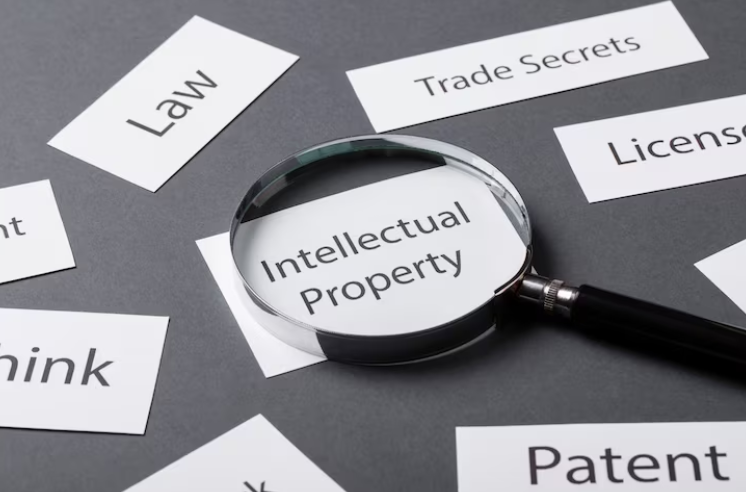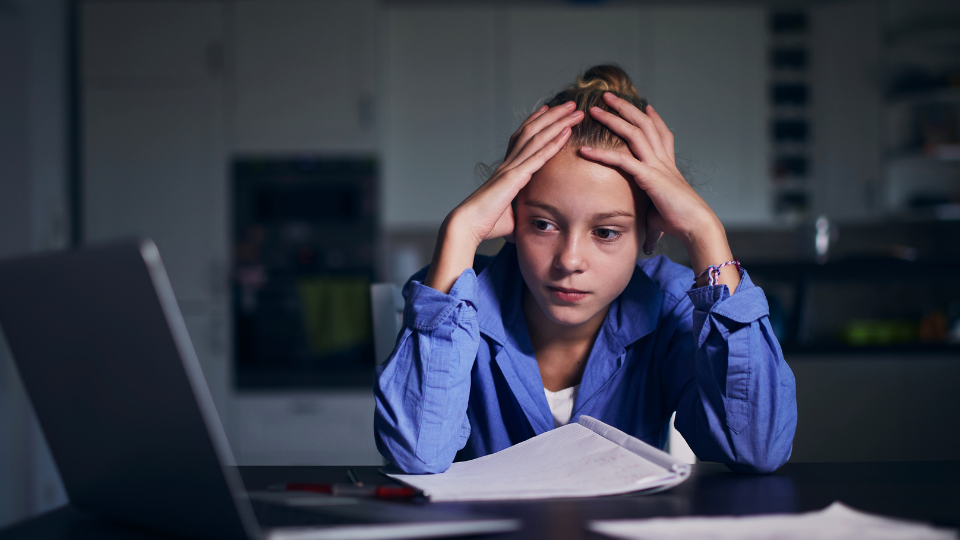Copyright infringement is more common than many realize, often occurring when individuals or businesses unknowingly use content—images, videos, software, or written works—without proper authorization. The ease of accessing digital content has blurred the lines of ownership, leaving many vulnerable to serious legal issues. Imagine creating a promotional video or blog post using what seemed like a “free” image or clip, only to receive a legal notice weeks later. The legal repercussions can be intimidating and expensive, disrupting business operations and reputations alike. If you’ve landed here, chances are you or someone you know is facing this exact issue.
In this blog, we’ll walk you through everything you need to understand about the legal risks associated with copyright infringement. From potential fines and lawsuits to criminal charges and reputational damage, we’ll explore how infringing on intellectual property can wreak havoc on your personal or professional life. Most importantly, we’ll guide you through the proactive steps you can take to avoid such consequences and how AiPlex Anti Piracy can support you with comprehensive copyright protection. CTA: Learn more about our copyright protection services.
Essential Facts You Need to Know Before Understanding Legal Consequences
Before delving into the consequences, it’s critical to understand the foundational elements of copyright law and infringement. Many missteps occur simply due to lack of awareness about what qualifies as copyrighted material or what constitutes “fair use.” Grasping these basics is essential to understand why copyright laws exist, how infringement is detected, and what behaviors could land you in legal trouble.
What is Copyright and What Does it Protect?
Copyright is a form of intellectual property that provides exclusive rights to creators over their original works. These rights cover reproduction, distribution, display, and modification. This protection applies to various content types including literature, music, software, visual art, and videos.
Many assume only published works are protected, but copyright protection kicks in as soon as the work is created and fixed in a tangible form. This misconception often leads people to reuse content thinking it’s unprotected, which can result in infringement.
How Infringement is Identified and Proven
Secondary keywords: digital piracy detection, copyright monitoring tools
Infringement detection methods have become more sophisticated with the rise of digital piracy detection tools and AI-powered copyright monitoring services. These tools scan the internet to locate unauthorized usage of protected works.
Rights holders often employ services that continuously monitor websites, social media, and file-sharing platforms. Once a match is identified, a cease-and-desist letter or DMCA takedown request is usually the first legal action taken.
Common Misconceptions About Fair Use
Secondary keywords: fair use myths, legal exceptions
“Fair use” is perhaps the most misunderstood aspect of copyright law. Many wrongly believe that small-scale usage or educational purposes automatically qualify under fair use. In reality, this doctrine is limited and fact-specific.
Courts consider factors like purpose, nature, amount used, and market impact when evaluating fair use. Misapplying this concept can turn an otherwise innocent action into a legal liability, particularly when the usage is commercial.
Legal Jurisdictions and International Implications
Secondary keywords: global copyright laws, cross-border infringement
Copyright law varies by country, but many international treaties harmonize core principles. Infringement that crosses borders can subject you to multiple jurisdictions and laws.
For example, using copyrighted content created in the U.S. on a website hosted in Europe could involve international legal proceedings. Knowing your responsibilities globally is just as crucial as understanding your local laws.
The Role of Intent in Legal Penalties
Secondary keywords: willful infringement, negligence in copyright law
Intent often affects the severity of penalties. Willful infringement—knowingly violating copyright—can result in harsher outcomes than unintentional or negligent violations.
However, ignorance of the law is rarely a valid defense. Even if the infringement was unintentional, you may still face fines or litigation, which underscores the need for proactive content audits and legal compliance.
Major Legal Consequences of Copyright Infringement
Each legal consequence of copyright infringement can significantly impact your finances, operations, and reputation. Understanding the weight of these penalties is the first step in protecting yourself or your business from falling into legal peril.
Civil Lawsuits and Financial Damages
Secondary keywords: copyright litigation, statutory damages
One of the most immediate consequences is being sued for copyright infringement. Plaintiffs may seek statutory damages ranging from hundreds to hundreds of thousands of dollars, depending on the nature of the infringement.
Legal proceedings also include attorney fees, court costs, and possible settlement payments. In high-profile cases, judgments can run into millions, especially when infringement is willful or widespread.
Criminal Charges and Jail Time
Secondary keywords: felony copyright infringement, criminal liability
While less common, criminal charges can arise from severe or willful copyright violations, particularly in cases involving piracy or counterfeiting. The consequences may include hefty fines and imprisonment.
The FBI and law enforcement agencies globally take part in investigating criminal copyright cases. Being charged criminally can result in a permanent criminal record, affecting employment and international travel.
Seizure of Assets and Business Disruption
Secondary keywords: digital content seizure, court injunctions
Courts can issue injunctions that compel infringers to stop using the copyrighted material. In some cases, physical or digital assets—like servers, websites, or equipment—may be seized.
This kind of enforcement disrupts business continuity, causes data loss, and may tarnish your relationships with clients and partners. Asset seizure is particularly damaging for startups and digital service providers.
Reputation Damage and Loss of Credibility
Secondary keywords: brand trust, public legal disputes
Being accused or found guilty of copyright infringement can damage public perception. This is especially critical for influencers, brands, and creators whose reputations are closely tied to trust and originality.
Clients, collaborators, and even investors may reconsider working with a business entangled in legal disputes. Long-term credibility loss can be more devastating than the legal penalties themselves.
Platform Bans and Account Terminations
Secondary keywords: content removal, account suspension
Digital platforms like YouTube, Instagram, and Amazon enforce strict copyright policies. Repeat offenses often lead to account termination, which can be catastrophic for content creators and eCommerce businesses.
Losing a monetized channel or marketplace account affects both visibility and revenue. Platform bans can also restrict future business opportunities if blacklisted from using their services.
Why You Should Choose AiPlex Anti Piracy for Copyright Protection
Secondary keywords: anti-piracy services, copyright enforcement solutions
Navigating copyright laws can be daunting, especially for businesses and creators who publish content frequently. AiPlex Anti Piracy specializes in end-to-end copyright protection, offering services from digital surveillance and automated takedowns to legal support and content tracking.
With decades of experience and cutting-edge tools, AiPlex acts as a reliable shield against unauthorized content use. Our anti-piracy services extend across industries—from entertainment and publishing to education and software. Whether you need real-time monitoring or customized copyright enforcement solutions, AiPlex ensures your intellectual property remains secure.
Explore our anti-piracy solutions today.
Conclusion
Copyright infringement is not just a minor legal hiccup—it’s a serious issue that can escalate quickly into lawsuits, financial strain, and reputational loss. From civil damages and criminal charges to business disruptions and digital penalties, the risks are extensive and far-reaching. Most people don’t intend to violate copyright laws, but the consequences of even unintentional infringement can be dire.
That’s why it’s essential to be proactive. Understanding copyright laws, using licensed content, and working with enforcement professionals like AiPlex Anti Piracy can safeguard your content and peace of mind. Don’t wait for a legal notice to realize the importance of copyright compliance—act now and protect what’s rightfully yours.
FAQs
- What is considered copyright infringement?
Using copyrighted material without permission or appropriate licensing, including images, videos, text, or software. - Can I be sued for accidental copyright infringement?
Yes, even unintentional use can lead to civil lawsuits and financial penalties. - What are the penalties for willful copyright infringement?
Willful infringement can lead to higher fines, legal fees, and even criminal charges. - How can businesses avoid copyright infringement?
By auditing all content, using licensed assets, and employing anti-piracy monitoring tools. - What is fair use and how does it work?
Fair use is a limited exception based on purpose, amount used, and market impact—it doesn’t apply in most commercial settings. - How do copyright holders track infringement?
Through digital tools, automated scans, and professional anti-piracy services like AiPlex. - Is downloading pirated software copyright infringement?
Yes, it’s a form of infringement and could result in legal consequences. - Can international users face legal action for infringement?
Absolutely. Cross-border copyright cases can involve international treaties and legal collaboration. - What platforms are strict about copyright compliance?
YouTube, Instagram, Amazon, and other content-hosting platforms actively enforce copyright rules. - How can AiPlex help protect my content?
AiPlex offers monitoring, detection, takedown, and legal support services tailored for complete copyright protection.



